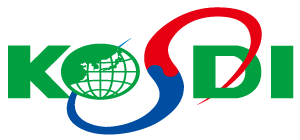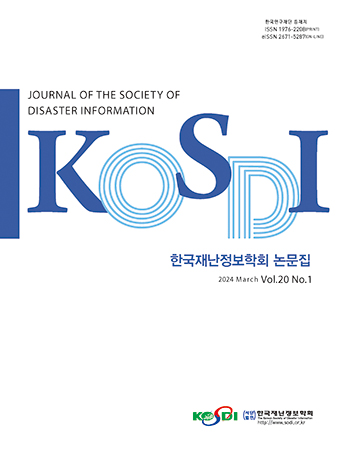Original Article
Abstract
References
Information
Purpose: The purpose of this study is to verify the effects of assessment and compensation system, information technology, knowledge quality, and knowledge management activities on the earthquake disaster management job performance. Method: Questionnaire survey was performed for the fire officials, and the multi-regression analysis for surveyed data was statistically performed by using SPSS 25.0 program. Result: Information technology, knowledge quality and knowledge management activities among the factors of the knowledge management system related to earthquake disasters have had significant positive effects on the earthquake disaster management job performance, but assessment and compensation system are found to have no significant effects on the earthquake disaster management job performance. Conclusion: It was confirmed that the higher the level of information technology, knowledge quality and knowledge management activities related to earthquake disasters, the higher the disaster management job performance.
연구목적: 본 연구에서는 지진 재난관련 지식경영시스템의 요인인 평가 및 보상체계 요인, 정보기술 요인, 지식품질 요인 및 지식경영활동 요인이 지진 재난관리 업무성과에 미치는 영향을 검증하는 것을 목적으로 한다. 연구방법: 소방방재 공무원을 대상으로 설문조사를 수행하였으며, 조사자료는 SPSS 25.0 프로그램을 활용하여 다중회귀분석 등의 통계적 분석을 수행하였다. 연구결과: 지진 재난 관련 지식경영시스템 요인 중 지진 재난 관련 정보기술, 지진 재난 관련 지식품질, 지진 재난 관련 지식경영활동 요인이 지진 재난관리 업무성과에 유의미한 정(+)의 영향을 미쳤으나, 지진 재난 관련 평가 및 보상체계 요인은 지진 재난관리 업무성과에 유의미한 영향은 미치지 않는 것으로 나타났다. 결론: 지진 재난 관련 정보기술과 지진 재난 관련 지식품질이 높고, 지진 재난 관련 지식경영활동이 적절하게 잘 이루어질수록 지진 재난관리 업무성과는 높아지는 것을 확인하였다.
- Choi, H.T., Ryu, S.I. (2006). "Comparison with USA and Japan=Plan for improvement of local governments' roles for effective countermeasures for disasters." The Korea Contents Society, Vol. 6, No. 12, pp. 235-243.
- Davenport, T., David, W., Beers, M.C. (1998). "Successful knowledge management project." Sloan Management Review, Winter, pp. 43-57.
- Han, S.E. (2002). "An exploratory and practical study on intelligent administrative organization: The case of disaster administration." Korean Public Administration Review, Vol. 36, No. 1, pp. 139-158.
- Kim, M.C., Kim, D.W. (2007). "Investigation of critical success factors and practical application of knowledge management system in the government organizations: A case study in J local government organization." Korean Association for Policy Sciences, Vol. 11, No. 2, pp. 1-28.
- Kline, R.B. (2010). Principles and Practice of Structural Equation Modeling. 3rd ED., Guilford Press, New York, US.
- Lee, J.E., Kim, K.H. (2005). "A study on the actual condition analysis and improvement of NDMS for disaster management information sharing." Journal of Korean Society of Policy Science, Vol. 9, No. 4, pp. 191-214.
- Lee, K.I., Choi, l.Y. (2003). "An empirical investigation of KM styles and their effect on corporate performance." Information & Management, Vol. 21, No. 2, pp. 110-121.
- McDermott, R., O'Dell, C. (2001). "Overcoming cultural barriers to sharing knowledge." Journal of Knowledge Management, Vol. 5, No. 1, pp. 76-88.10.1108/13673270110384428
- Sim, H.S. (2010). An Empirical Study on Impact of Knowledge Management Success Factors on Disaster Management Task Performance. Doctor's Thesis, Graduate School of Dongguk University.
- Uday, R.K., Sury, R., Ronald, F. (2007). "A knowledge management success model: Theoretical development and empirical validation." Journal of Management Information Systems, Winter, Vol. 23, No. 3, pp. 310-319.10.2753/MIS0742-1222230311
- Publisher :The Korean Society of Disaster Information
- Publisher(Ko) :한국재난정보학회
- Journal Title :Journal of the Society of Disaster Information
- Journal Title(Ko) :한국재난정보학회논문집
- Volume : 16
- No :2
- Pages :353-363
- DOI :https://doi.org/10.15683/kosdi.2020.06.30.353




 Journal of the Society of Disaster Information
Journal of the Society of Disaster Information







